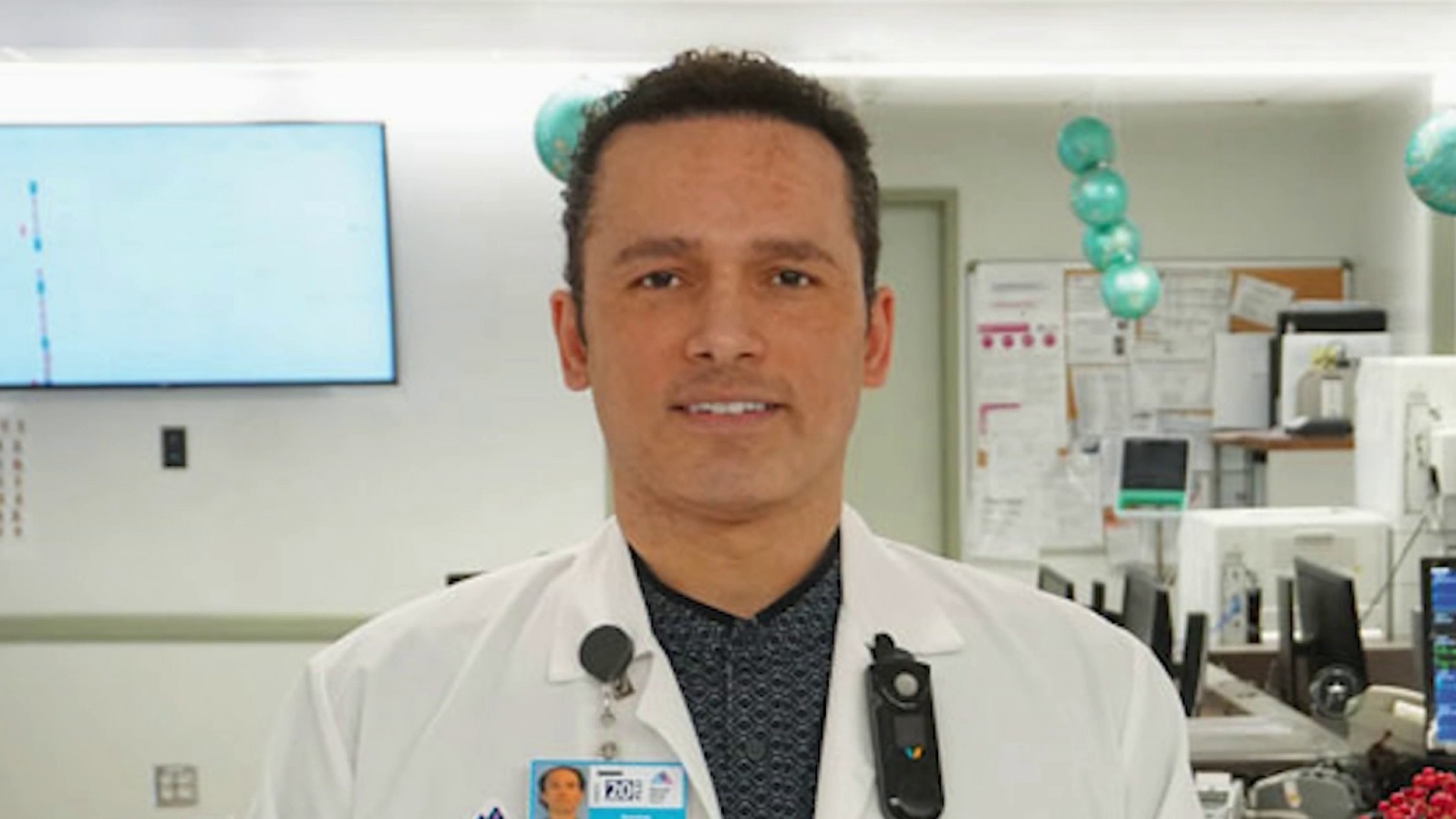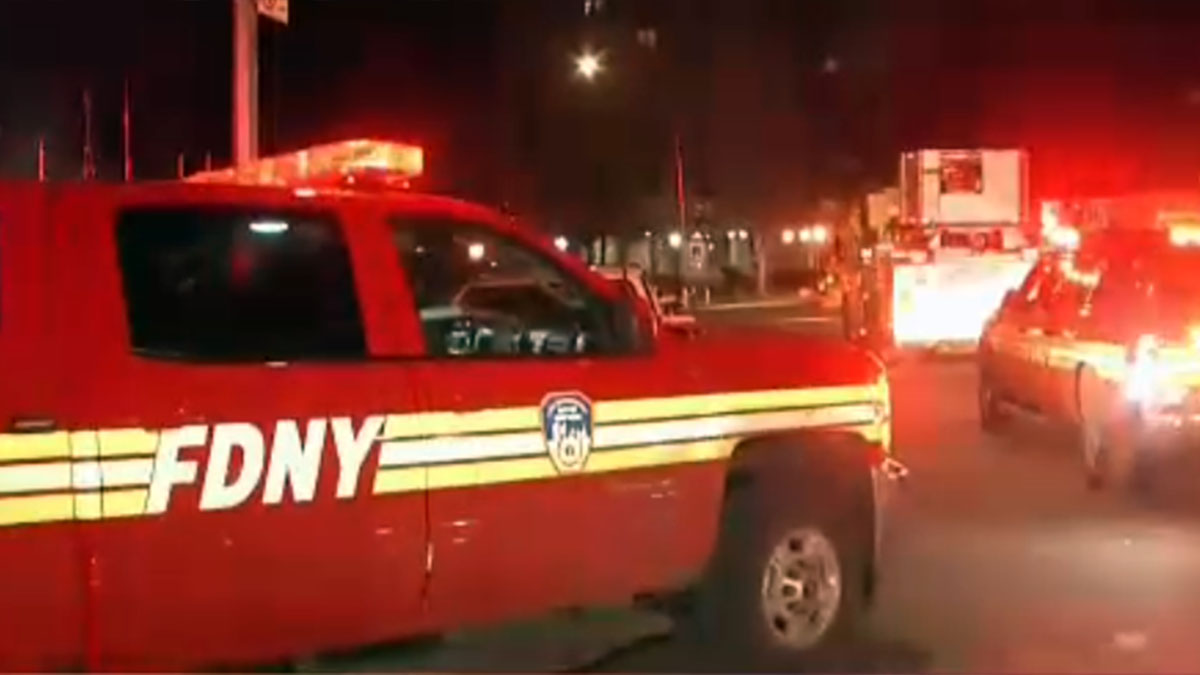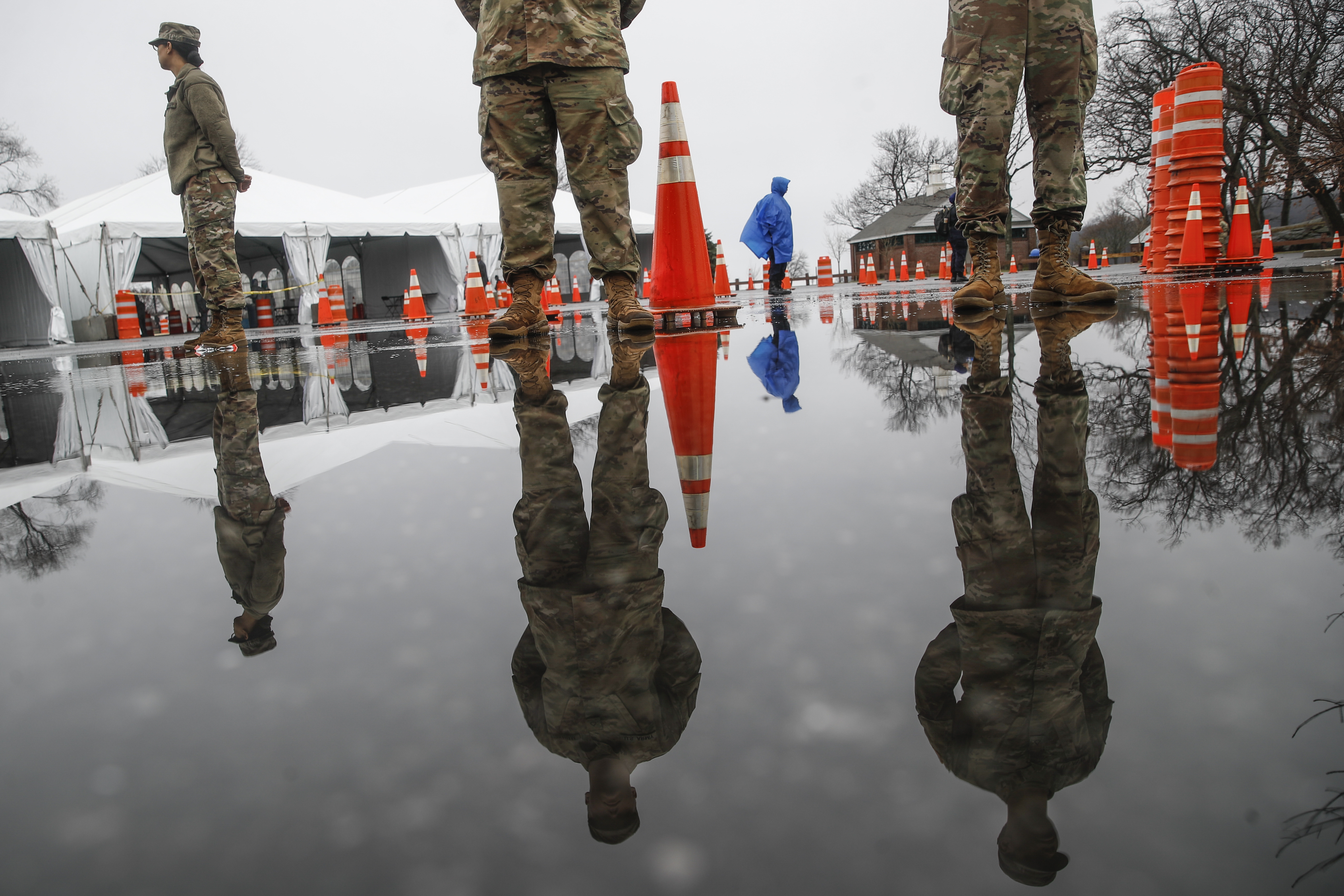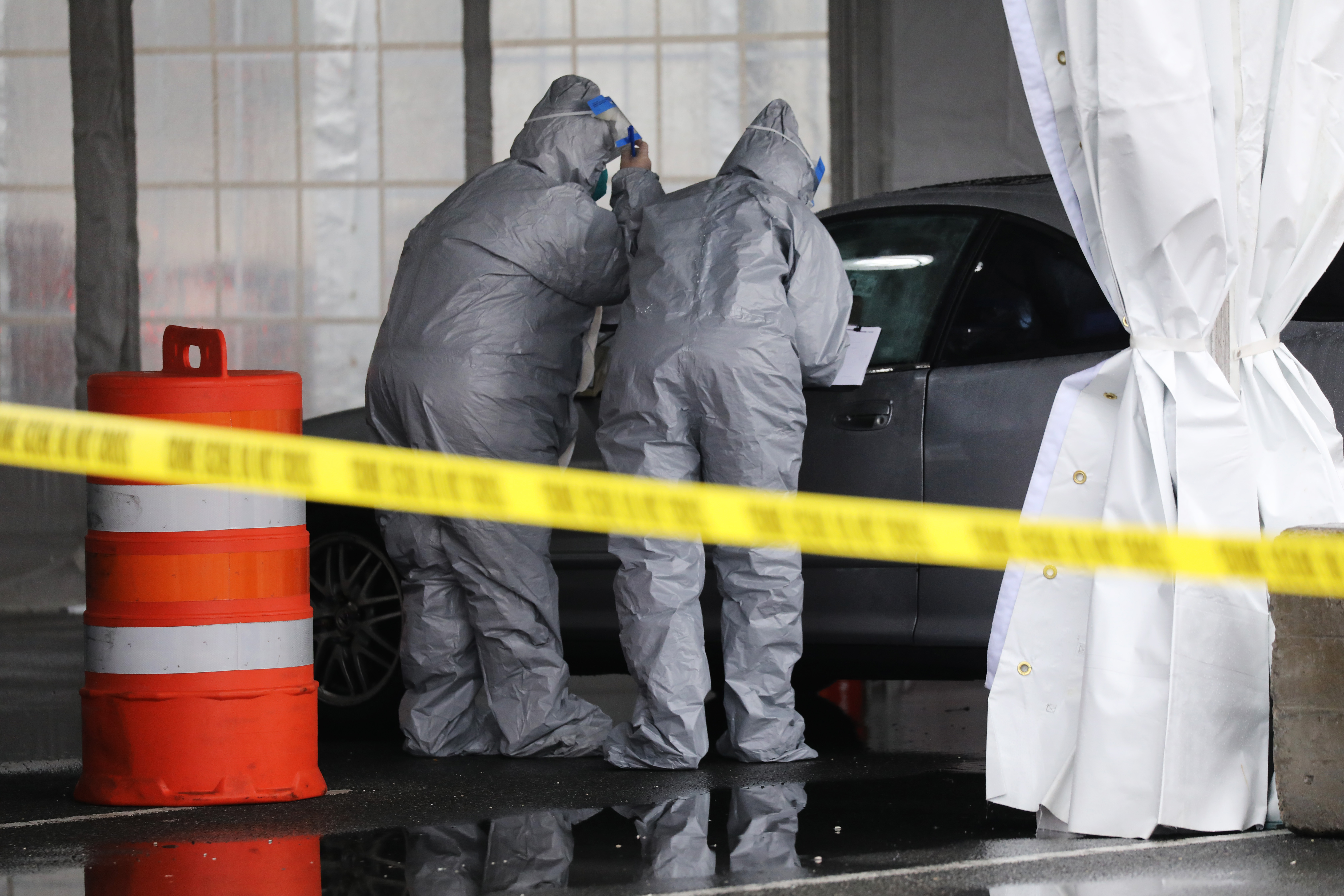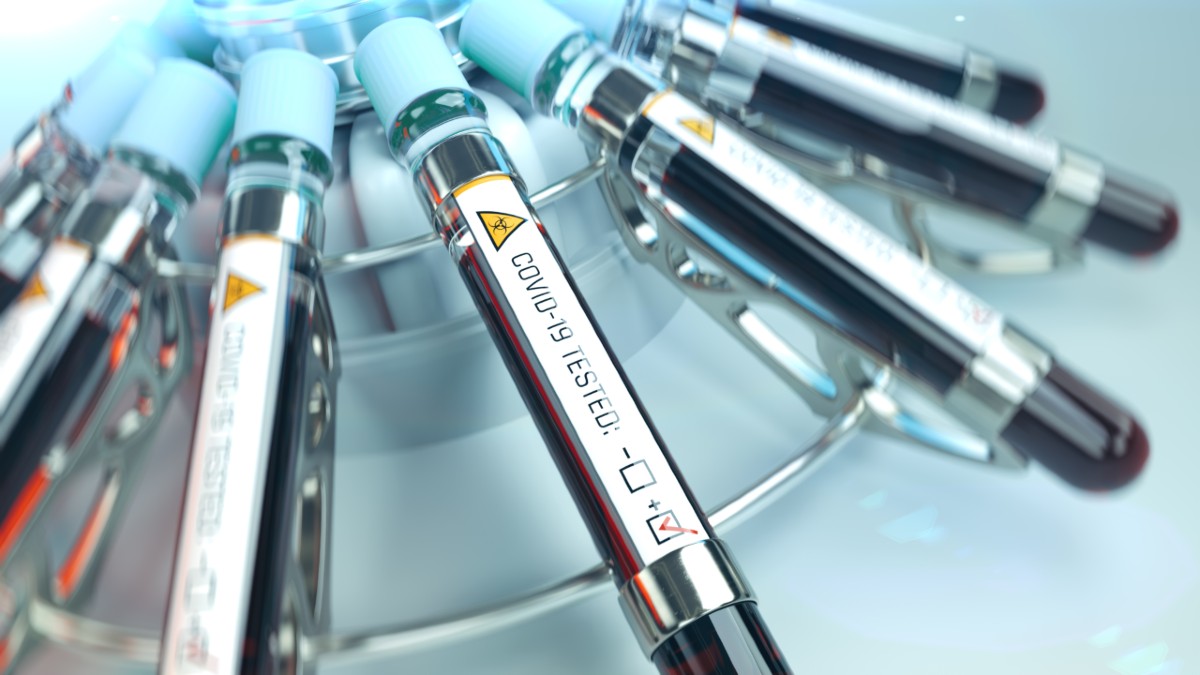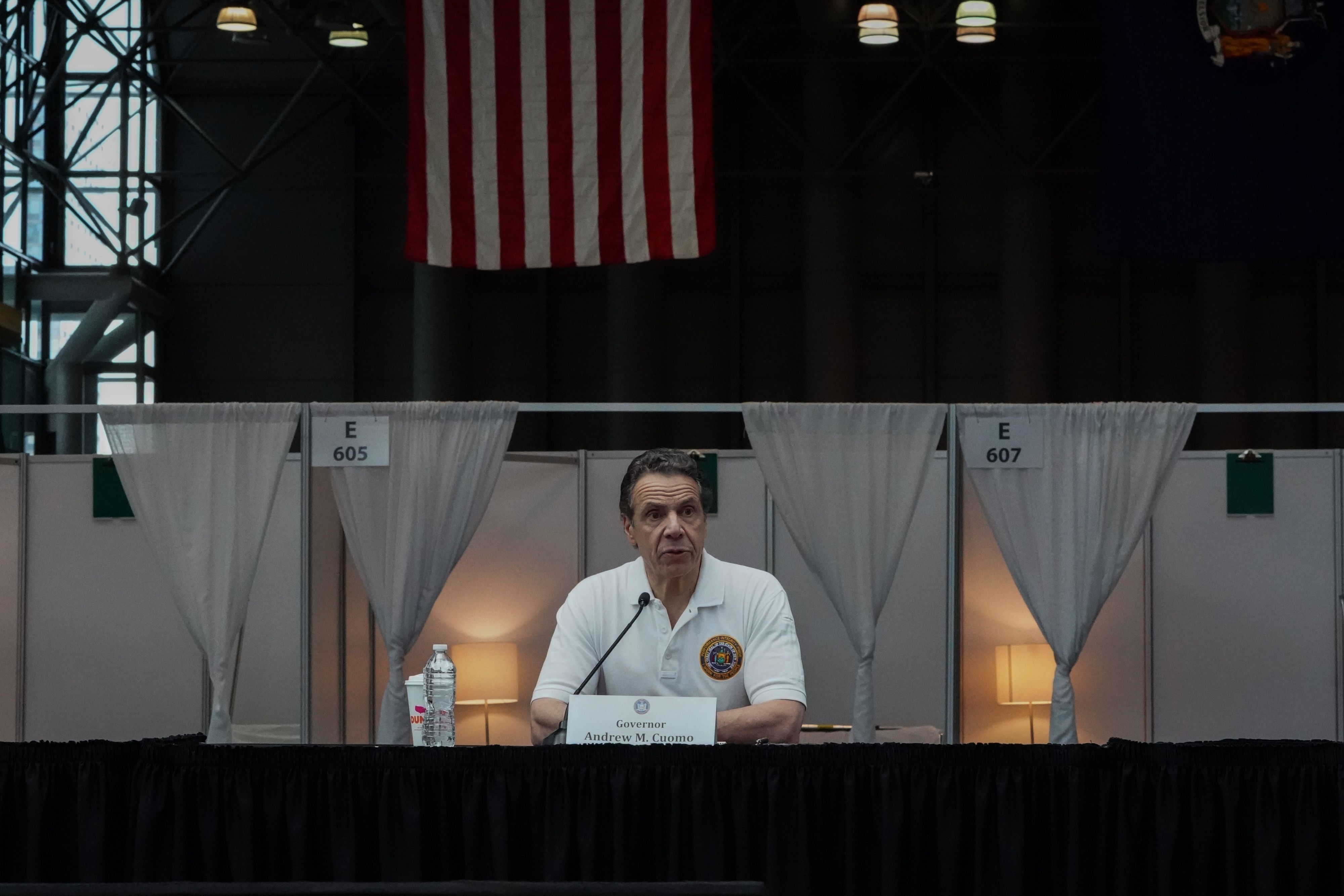What to Know
- Gov. Andrew Cuomo extended New York State's "PAUSE" directive requiring all non-essential employees to work from home until April 15
- President Donald Trump extended the voluntary national shutdown for a month as sickness and death from the coronavirus pandemic rise
- More than 76,000 people in the tri-state have now tested positive for COVID-19; at least 1,160 people in the tri-state have died
Gov. Andrew Cuomo on Sunday extended the New York State's "PAUSE" directive requiring all non-essential employees to work from home for two weeks, to April 15, as the number of positive cases in the state rose to 59,513.
Cuomo made the announcement at a news conference Sunday afternoon — less than a day after the Centers for Disease Control and Protection issued a 14-day travel advisory for New York, New Jersey and Connecticut as the number of confirmed COVID-19 cases in the tri-state surpassed 65,000.
The "PAUSE" directive also bans non-essential gatherings, Cuomo noted.
President Donald Trump, just hours later, extended the voluntary national shutdown for a month as sickness and death from the coronavirus pandemic rise in the U.S.
It was a stark shift in tone by the president, who only days ago mused about the country reopening in a few weeks. From the Rose Garden, he said his Easter revival hopes had only been “aspirational.”
The initial 15-day period of social distancing urged by the federal government expires Monday and Trump had expressed interest in relaxing the national guidelines at least in parts of the country less afflicted by the pandemic. He instead decided to extend them through April 30, a tacit acknowledgment he'd been too optimistic.
New York State has now seen 965 coronavirus-related deaths, Cuomo said — up from 728 on Saturday. As of 6:30 p.m. Sunday, 33,474 people in New York City had tested positive for the novel coronavirus, and 776 people had died, according to city data.
That total includes 6,250 in the Bronx, 8,887 in Brooklyn, 5,582 in Manhattan, 10,737 in Queens, 1,984 on Staten Island and 35 from "unknown" locations, the data shows. Forty five percent of those who tested positive were under the age of 45.
Mayor Bill de Blasio offered clarity regarding social distancing fines, a ticket he said runs between $250 and $500.
"Now it's as simple as this: if someone is told by an officer, disperse, keep moving, you're not distanced and they don't follow the direct instruction from officer or they say they're doing it and then they'd come back right away, I'm comfortable at this point that they will be fined," de Blasio said.
In the meantime, de Blasio says he wants to keep playgrounds open if possible, but will close if the city sees a pattern of non-compliance over several days.
Joining de Blasio's afternoon teleconference, New York City Health Commissioner Oxiris Barbot shared the mayor's belief that April could prove to be more deadly than March.
"The reality is that if we think about the typical flu season on a yearly basis New York loses roughly 1,000 to 2,000 people because of influenza. I think we are on the scale of having many more people ... die because of COVID-19," city health commissioner Oxiris Barbot said. "We're definitely on track for having more deaths than we would typically see in a flu season."
New Jersey, meanwhile, saw 2,262 new cases from Saturday into Sunday, bringing the state's total to 13,386. A total of 161 people in the state had died as of 1:30 p.m. Sunday, up from 140 on Saturday.
While New York State's hospitalization rate spiked sharply on Saturday after two days of declines, Cuomo said the doubling rate is down to every six days.
Cuomo also announced the opening of a new mobile testing site in the northeast Bronx, set to open in the parking lot of the Bay Plaza AMC Theater on Bartow Avenue at 10 a.m. on Monday, March 30. The site is expected to be open Monday through Sunday from 8 a.m. to 6 p.m.
Saturday's travel advisory was issued at the request of President Donald Trump and the White House Coronavirus Task Force. Trump said he had weighed the possibility of a 14-day quarantine for New York State, and possibly New Jersey and Connecticut, but ultimately asked for the travel advisory instead.
"Due to extensive community transmission of COVID-19 in the area, CDC urges residents of New York, New Jersey, and Connecticut to refrain from non-essential domestic travel for 14 days effective immediately," the CDC advisory read.
In a CNN interview on Sunday morning, Dr. Anthony Fauci, director of the National Institute of Allergy and Infectious Diseases, said both he and Trump believed the advisory would be "much better" than a quarantine.
"You don’t want to get to the point where you’re enforcing things that would create a bigger difficulty, morale and otherwise, when you can probably accomplish the same goal,” Fauci said.
“What you don’t want is people traveling from that area to other areas of the country and inadvertently and innocently infecting other individuals,” he added.
During his own appearance on CNN Sunday morning, Mayor Bill de Blasio said he wasn't going to "fixate" on the travel advisory, noting that he was "entirely focused on making sure we have what we need to save lives in New York City."
"The only comment I have on it is, we’ve got to be mindful of families that at this crucial moment want to reunite,” he said. “We’ve got to be really respectful in the middle of a crisis — families have the right to be together. And this is going to be a long crisis.”
The CDC says the governors of New York, New Jersey and Connecticut have full discretion over the advisory's implementation. The advisory does not extend to "employees of critical infrastructure industries," as defined by Homeland Security.
"On the recommendation of the White House CoronaVirus Task Force, and upon consultation with the Governor's of New York, New Jersey and Connecticut, I have asked the @CDCgov to issue a strong Travel Advisory, to be administered by the Governors, in consultation with the Federal Government. A quarantine will not be necessary. Full details will be released by the CDC tonight. Thank you!" Trump tweeted Saturday evening.
Connecticut Gov. Ned Lamont on Sunday said he spoke with Trump and Vice President Mike Pence on Saturday night and learned there would "be no further talk of a mandatory quarantine/lockdown, rather than a strict travel advisory, which reinforces what we are already doing in Connecticut."
Lamont also announced that FEMA had approved his request for a "Major Disaster Declaration" for the state. As part of the declaration, "impacted state agencies and municipalities in all eight counties will be reimbursed for 75 percent of the costs associated with their response and emergency protective measures," Lamont said in a release.
Before the president settled on a travel advisory, New York Gov. Andrew Cuomo appeared on CNN Saturday, calling the idea to quarantine entire states a "civil war-kind of discussion."
"I don't believe he's serious — that any federal administration could be serious about physical lockdown of states or parts of states across this country. I don't believe it's legal. I think it would be economic chaos. I don't think the American people would stand for it," Cuomo said to CNN's Ana Cabrera.
When asked about reports of the Rhode Island governor ordering all vehicles with New York State license plates be stopped when entering the state, Gov. Cuomo told Cabrera his state would sue over the "unconstitutional" practice.
"If they don't roll back that policy, I'm going to sue Rhode Island, because that clearly is unconstitutional," said Cuomo. "I understand people are nervous and people are anxious and this is a frightening situation, but we have to keep it in focus, and we have to keep the ideas and the policies we implement positive, rather than reactionary and emotional."
New York City health officials on Saturday evening reported an additional 155 deaths since 10 a.m. Saturday, marking the highest number of recorded deaths in a single day, and bringing the death total in the city to 672.
The number of people that have tested positive for COVID-19 in New York City reached 30,765. Among those who tested positive Saturday were MTA Chairman and CEO Pat Foye, and Knicks owner James Dolan.
De Blasio shared positive news earlier in the day: the additional of 250,000 surgical masks. The mayor announced the United Nations was donating the masks to the city's medical staff on the front lines.
New Jersey Gov. Phil Murphy, meanwhile, said the state saw another 2,289 positive test results overnight Friday into Saturday, bringing the statewide total to 11,124. Another 32 New Jersey residents have died, Murphy added, bringing the number of deaths in the state to 140.
Murphy also announced a 90-day “grace period” for mortgage payments for any borrowers who have been economically impacted by the COVID-19 outbreak.
“This grace period CANNOT and WILL NOT be used to downgrade anyone’s credit rating,” Murphy wrote on Twitter. “Lenders will also waive any late fees or other costs which would otherwise arise, because of this 90-day grace period.”
Landlords, Murphy added, will not be able to kick renters facing evictions out of their homes.
“If you try to, we are not going to take it lightly, and we will make an example out of you for violating the law,” Murphy said at a news conference.
New Jersey will also require health care facilities to report “daily data” on their personal protective equipment (PPE) inventory, their bed capacity and their ventilator inventory, Murphy said.
Tracking Coronavirus in Tri-State
Rutgers University announced late Saturday that it would expedite graduations for 192 medical students in the coming weeks. The medical students will graduate in April and allow them to begin their hospital residencies early.
At a news conference Saturday afternoon, Cuomo announced that he would postpone New York's presidential primary to June 23 in light of the growing crisis. It was originally scheduled to take place on April 28.
In an increasing number of cases, loved ones don't get a chance to say goodbye.
"Too many people are dying alone," New York City emergency room physician Dr. Kamini Doobay told the AP. "It’s been incredibly painful to see the suffering of family members who I call from the ICU, hearing the tears, crying with them on the phone. It's one of the most horrific things."
The signs of strain are everywhere: Lines of people to get tested stretching around city blocks before sunrise, including at Elmhurst Hospital, which reported 13 fatalities in a single day; doctors describing their ERs as "apocalyptic;" adult children begging to see their parents in nursing homes; healthcare workers treating patients for hours on end, venting their desperation and fear on social media.
Coronavirus Latest
Some have called coronavirus "the humanitarian mission of our lifetimes." Others have described it as "the greatest humanitarian crisis in a century."
One doctor told NBC News that "Every time I leave from a shift, I cry. Each shift. Every shift I work I have cried after leaving...because of the pain and suffering we see and the amount of exposure that myself and my nurses as well as my doctors (experience)."
At a press conference last week, de Blasio said the "crucial date" right now is April 5: That's when the city could potentially run out of the necessary medical supplies to treat COVID-19 patients.
"We have what we need for next week. But after (April 5) is when I get very, very worried," de Blasio said. "That is a decisive moment for the City of New York."
Hunt for Hospital Beds -- and Ventilators
New York state has a new goal — to get 1,000-plus bed overflow facilities in all five boroughs as well as in Westchester, Suffolk, Nassau and Rockland counties, Cuomo said Thursday. The state is also working to shift some patient load from overwhelmed downstate hospitals to upstate facilities, he said. De Blasio, meanwhile, is working within his administration to triple NYC bed capacity.
The Javits Center operation -- the 1,000-bed project developed by the state and the four 250-bed FEMA-run and staffed areas -- will be fully operational by Monday, Cuomo said Friday. As he told personnel, "You built a hospital in a week." The Manhattan center will house non COVID-19 patients to help take some of the non-viral crowd off the shoulders of hospitals.
There are a number of FEMA-run field hospitals going up in New Jersey as well, including one at the sprawling Meadowlands complex just across the river.
Coronavirus Latest
The latest battlefront is ventilators. Thousands of people with COVID-19 are sick enough that they need ventilators to help them breathe — in some cases, Cuomo said, for 20 days or more. But New York alone is more than 18,000 units short of what it expects to need at the peak of the crisis. To claims, including by Trump, that Cuomo is overestimating the number of ventilators the state will need, the governor said Friday he hopes the doubters are right, but for now he's just going by facts.
De Blasio said he supports Cuomo's call to get 30,000 ventilators for the state, with the city in need of many as well. The mayor said that because New York is getting the virus first, the state would send the ventilators where they need to be as the virus is likely to spread elsewhere.
Hospitals struggling to stay afloat will get more relief, as will many others. On Friday, the U.S. House of Representatives passed and President Trump signed the historic $2.2 trillion coronavirus relief bill, a package that promises to infuse business, state and city governments and individuals with direct cash and immediate support. Checks could be flowing within three weeks.
Desperate Times
Trump wants to have the economy "raring to go" by Easter -- a concept de Blasio has blasted as "literally inconceivable" for his city, the epicenter of the national outbreak. Murphy said it won't work for New Jersey either; he said nothing would make him happier than reviving the economy but doing so too soon would be akin to throwing gasoline on an already raging fire.
Initial unemployment claims nationwide hit 3.28 million Thursday, nearly five times the previous all-time record. De Blasio predicts that as many as half a million city residents either have lost or will lose their jobs due to the outbreak.
The demand for medical personnel, on the other hand, is far outpacing the supply -- so much so that New York, New Jersey and Connecticut have all called on retirees to return to work and help answer the call. Mental health professionals, thousands of them so far and more daily, have also signed up to field calls via the state's new hotline. On the other side of the spectrum, NYU says it will graduate its medical students early to help shoulder the load.
In New York City, hospital staffs have been moved around in an effort to address shortages at different locations. More than 60 clinicians (including RNs, nurse practitioners, physicians and physician assistants) have been sent to help with the influx of patients at Elmhurst Hospital, along with 40 ventilators. On Saturday, more than 100 additional nurses were reassigned to the fatigued hospital.
Private companies are stepping to the plate, donating millions of masks and thousands of bottles of hand sanitizer. JetBlue is flying volunteer medical workers to New York state for free. At least one hotel -- the Four Seasons in New York City -- has opened its rooms to healthcare workers free of charge, while Hertz is offering free vehicle rentals to healthcare workers. The Brooklyn Navy Yard has turned into a "wartime factory," as de Blasio describes it, with two companies shipping tens of thousands of newly made medical face shields to first responders out of a warehouse that didn't even exist before the crisis.
New York City has been providing childcare for essential workers and New Jersey has ordered all daycare centers to solely care for children of those key personnel as well. If not, they must close by April 1. As for when schools will reopen, that remains very much up in the air. Cuomo said Friday New York schools will stay closed at least for another two weeks, but if the current numbers increase continues, they'll be closed for longer. Murphy says he won't even reconsider the matter in New Jersey until April 17. He said Friday he doesn't envision a scenario where the current restrictions would be lifted prior to May, a premise de Blasio put forward earlier in the day as it relates to New York City.
More Testing, More Cases
Numbers will continue to rise as more people are tested, officials have said. New York has accounted for 25 percent of all COVID-19 testing in America to date, Cuomo said Thursday. That is an accomplishment, he noted: Find the cases, isolate the positives and treat them. That, in conjunction with the social distancing and economic measures in place, will curb the spread of infection.
Governors are working to accelerate action on the drug front as well. New York launched a clinical trial for an experimental treatment and plans to be the nation's first state to try to heal critically ill patients using recovered people's plasma — a process called convalescent plasma that was used during the flu epidemic of 1918. Right now, everything is on the table.
Responding to the Crisis
Where Do We Go From Here?
The depths of the outbreak — and its impact — are incomprehensible at this point but most definitely catastrophic: Billions upon billions of dollars have been lost and more will be lost; many have died, far more have been sickened. The grim totals will rise — and it may be months before we see the curve flatten out.
The World Health Organization declared the novel coronavirus a pandemic, the first coronavirus to ever earn the dubious distinction. It's novel — that means it's new and no one has immunity to it.
Nationally, there were more than 124,680 confirmed cases as of Sunday morning, including nearly 2,200 deaths.



